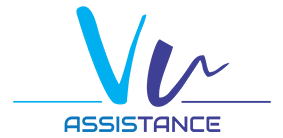What does CRM stand for?
CRM is an acronym of the word group “Customer Relations Management”.
What is CRM?
“Customer Relations Management” is a strategy used to manage the relationships and interactions of an organization with its customers and potential customers.A Customer relationship management system helps companies stay connected to customers, streamline processes and increase profitability.
However, you do not know anything about CRM and ask someone about the subject ” What is CRM?” If you ask, he will probably describe a CRM system. In other words, it is software that improves the communication management, sales management, customer and employee relations of companies and increases the efficiency of all these processes.
What does the CRM program do?
CRM software records customer information such as the company, address, e-mail, telephone, website, social media profile. The CRM system organizes this information to provide you with complete data about customers and companies; thus, it enables you to manage your time better. It stores all the information you need to fully profile the customer, understand them better and provide better service. It is the company’s memory that does not disappear and does not age.
Why is CRM important?
CRM enables a business to deepen its relationships with its customers, service users, partners, and suppliers.
Building good relationships and keeping track of prospects and customers is crucial to customer acquisition and retention, which is at the heart of CRM’s function. With CRM, it is possible to view information such as customer records, past orders, projects, contact persons list, meeting notes, technical needs on a single dashboard.
What are the benefits of CRM?
CRM facilitates the work of many departments and employees in companies:
Sales teams can use CRM to better understand their customers. Sales managers can access reliable information about the progress of team members in reaching their sales goals and see how well products and campaigns are performing.
Marketing teams can use CRM to make their analysis simpler and more accurate. By querying the status of each project or possible order, you can see the breakdown of the services realized until the sale; thus, it gives them a better understanding of the sales process and the plan of future business. It is also possible to analyze customers’ common social media activities (their likes, feelings about specific brands and businesses).
Customer service teams can effectively monitor conversations between channels. When a customer raises a problem on social media, they can go to email, phone or live chat to resolve the issue privately.
Supply chain, supply and partner management relationships can be better managed. Meetings with suppliers and partners can be monitored, requests can be recorded, useful notes can be added, follow-ups can be planned. Reporting allows businesses to compare the productivity of suppliers, so that the entire supply chain process can be managed more effectively.
The human resources team can use CRM to speed up the recruitment process, monitor employee performance and manage offboarding processes such as outplacement service. CRM automates the recruitment process by speeding up the recruitment process. It can assist the human resource function by analyzing resource needs and identifying talent gaps.
Other benefits common to each unit can be listed as follows:
- Advanced contact management
- Cooperation between teams
- High efficiency
- Strengthened sales management
- Accurate sales forecast
- Reliable reporting
- Improved sales metrics
- Increased customer satisfaction
- Increased marketing ROI (return on investment)
- Enriched products and services
CRM types
CRM for the company: The software is located on the company’s own servers. Also, it often requires a lengthy setup process to fully integrate a company’s data.
Cloud-available CRM: Data is stored on an external remote network that employees can access whenever they want, wherever there is an internet connection, and sometimes with a third-party service provider that supervises installation and maintenance.
Open-source CRM: An open-source CRM system makes its source code public and allows users to make changes at no cost to the company using the system.
The future of CRM
Undoubtedly, the data recorded in the CRMs of companies is increasing day by day. By adding big data and machine learning concepts to the work, it is possible to interpret this data and make company actions in line with these data. CRM systems will enable you to respond to customer needs faster by interpreting thousands of data that cannot be seen with the naked eye. This will return more orders to the company.
CRM programs
There are many different CRM programs in the market according to the needs of the companies. We tried to list some of them. You can research the capabilities of the programs according to your needs and choose the appropriate software for your company:
- NetSuite
- Salesforce
- Oracle
- HubSpot
- SAP CRM
- Copper
- Zoho
So, are you looking for the best CRM providers? NetSuite is a great option for you. At Anchor group, there are great NetSuite developers and NetSuite consultants for the best NetSuite implementation for your business. On the other hand, you can also use NetSuite apps to performing actions on your phone. It provides both NetSuite app for iPhone and for Android.

